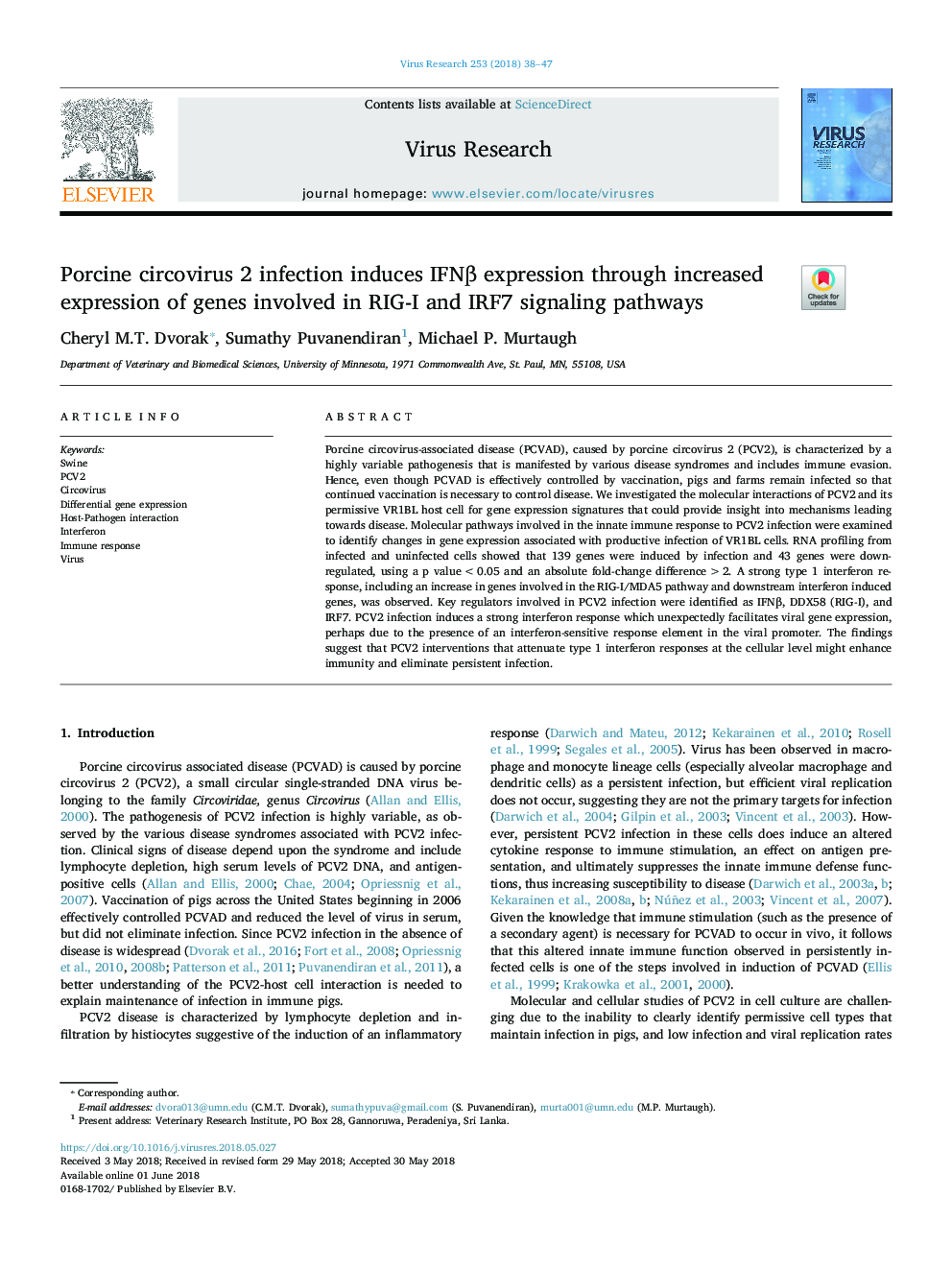| Article ID | Journal | Published Year | Pages | File Type |
|---|---|---|---|---|
| 8751714 | Virus Research | 2018 | 10 Pages |
Abstract
Porcine circovirus-associated disease (PCVAD), caused by porcine circovirus 2 (PCV2), is characterized by a highly variable pathogenesis that is manifested by various disease syndromes and includes immune evasion. Hence, even though PCVAD is effectively controlled by vaccination, pigs and farms remain infected so that continued vaccination is necessary to control disease. We investigated the molecular interactions of PCV2 and its permissive VR1BL host cell for gene expression signatures that could provide insight into mechanisms leading towards disease. Molecular pathways involved in the innate immune response to PCV2 infection were examined to identify changes in gene expression associated with productive infection of VR1BL cells. RNA profiling from infected and uninfected cells showed that 139 genes were induced by infection and 43 genes were down-regulated, using a p value <0.05 and an absolute fold-change difference>2. A strong type 1 interferon response, including an increase in genes involved in the RIG-I/MDA5 pathway and downstream interferon induced genes, was observed. Key regulators involved in PCV2 infection were identified as IFNβ, DDX58 (RIG-I), and IRF7. PCV2 infection induces a strong interferon response which unexpectedly facilitates viral gene expression, perhaps due to the presence of an interferon-sensitive response element in the viral promoter. The findings suggest that PCV2 interventions that attenuate type 1 interferon responses at the cellular level might enhance immunity and eliminate persistent infection.
Keywords
Related Topics
Life Sciences
Immunology and Microbiology
Virology
Authors
Cheryl M.T. Dvorak, Sumathy Puvanendiran, Michael P. Murtaugh,
